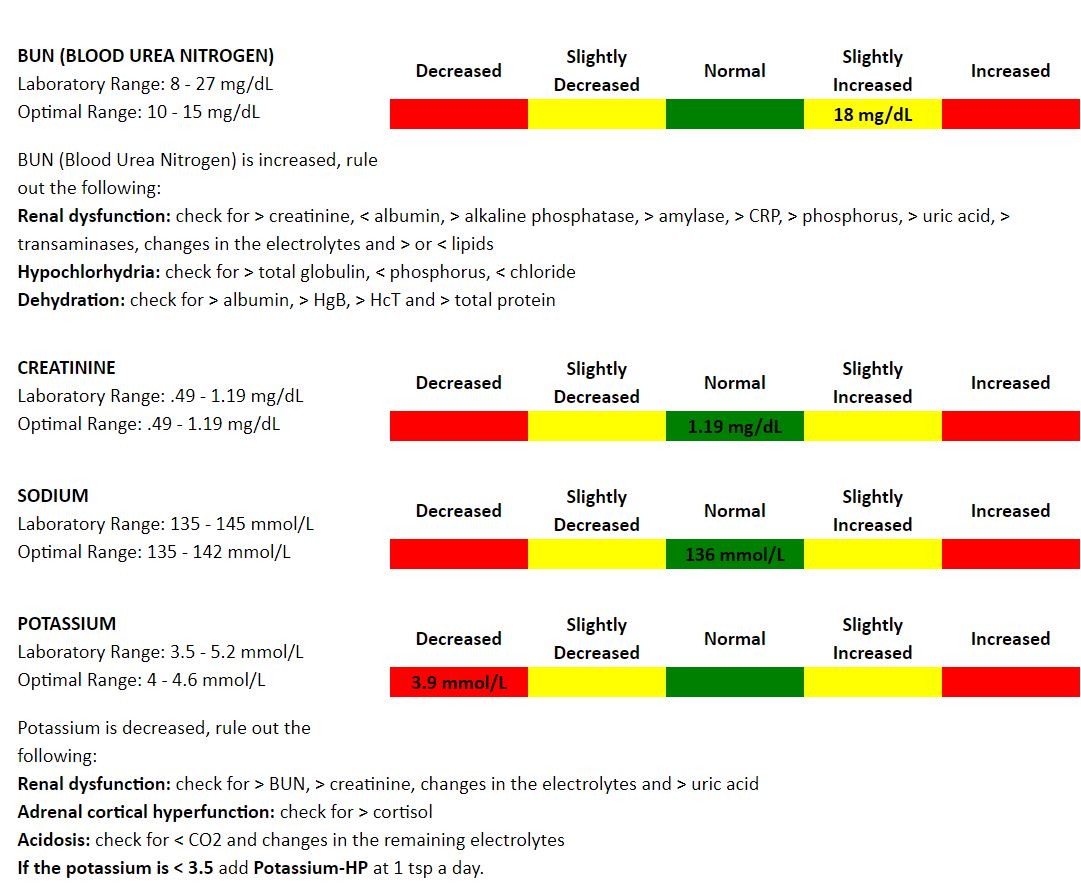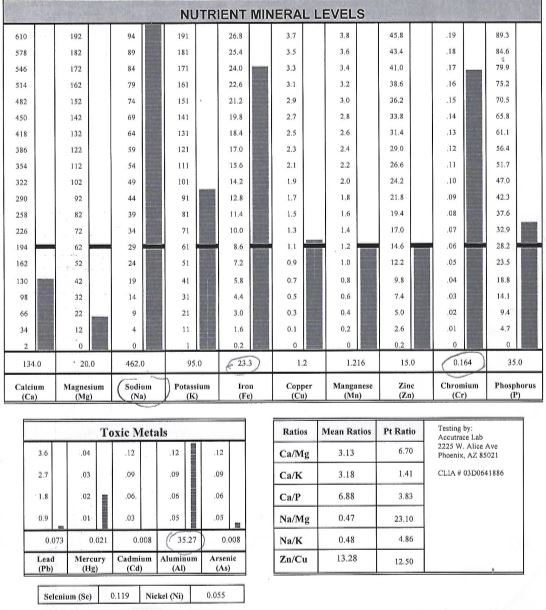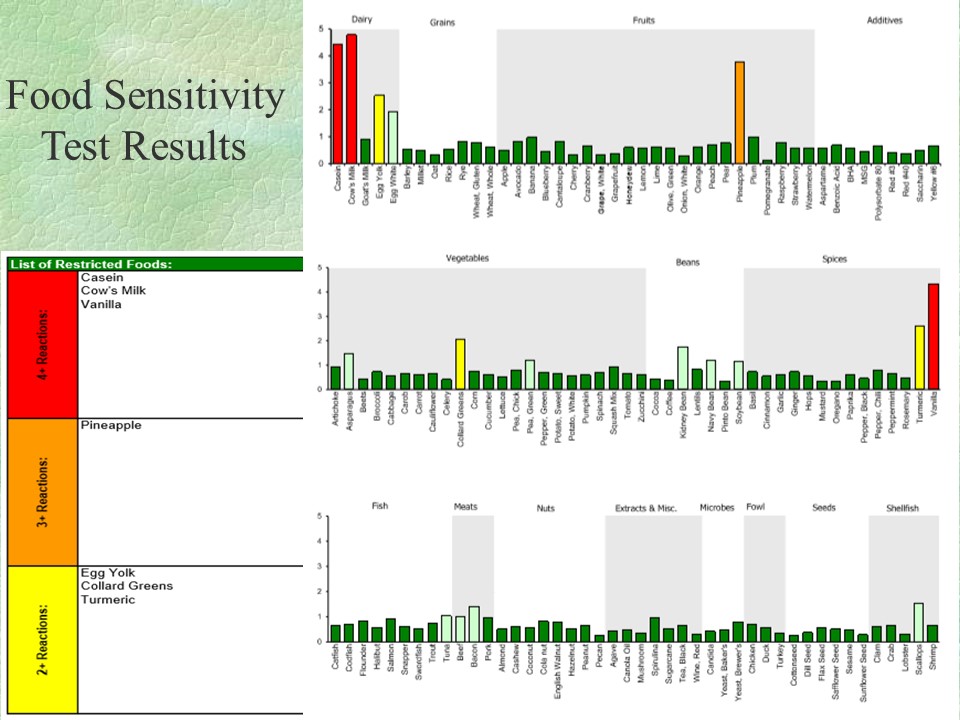Tests

Blood Chemistry Analysis
Blood chemistry analysis looks at ratios that give a better picture of
your health. Just looking to see if the numbers that fall within a lab's
range does not give enough information.
Example: Ff your lymphocytes are lower than your neutrophils by 30
points, a bacterial infection should be considered.
Blood ranges are lab dependent, meaning that the blood samples the lab
analyzes makes up the range of values for people in their local area. This
means the blood ranges can be different comparing a rural area or a large city.

Hair Mineral Analysis (HMA)
Minerals (and toxic metals) are stored in tissues, including hair. A hair sample shows about 3 months of storage.
As with blood, looking at individual numbers
is not as effective as looking at ratios.
- A HMA does not tell you how much is being stored but what is being excreted.
- For heavy metals, you may have more of them in your body and other metals that are not being excreted. The good news is that we know what is being excreted and can work with that information. There are others tests to assess your toxic load.
- Mineral levels work as teams, such as zinc and copper. Their levels also react with toxic metals. This information helps in the design of a diet and supplementation plan.
 Nutrigenomics - Genetic Testing
Nutrigenomics - Genetic Testing
We used to think there was nothing you can do if it was "in
your genes". Low-cost testing from 23andMe combined with
other services provides insight to our genome. We now know that
over 95% of our genes are turned on and off by diet and lifestyle!
Did you know that medications can turn on a gene for a disease? They are called "medically induced
SNP's". More and more physicians are having genetic testing on patients to identify what drugs they
shouldn't give to a patient. Currently in 2018, medications are the 3rd cause of death with 50% of those
from reactions to the drugs.
Nutrigenomics is the study of how our food and nutrients affect or influence the behavior of our genes.
For example, if I want to boost the activity of a gene with a SNP that slows its ability to create a
compound called sulforaphane, I would include cruciferous vegetables.
A good book to read that explains the most common and researched SNP's is "Dirty Genes" by Dr. Ben
Lynch. He tells you what you can do to turn SNP's off and on using food.
 Food Allergy/Sensitivity Testing
Food Allergy/Sensitivity Testing
There is a difference between food allergy and food sensitivity:
- Allergies are a reaction to proteins.
- Sensitivities are reactions to a variety of different stimuli such as a skin product, food with high histamines, or perfume.
Elimination diets, and evaluation of certain food types are tools I use if a test has not been conducted. But, a test may be recommended based on the client's history.
|
|



